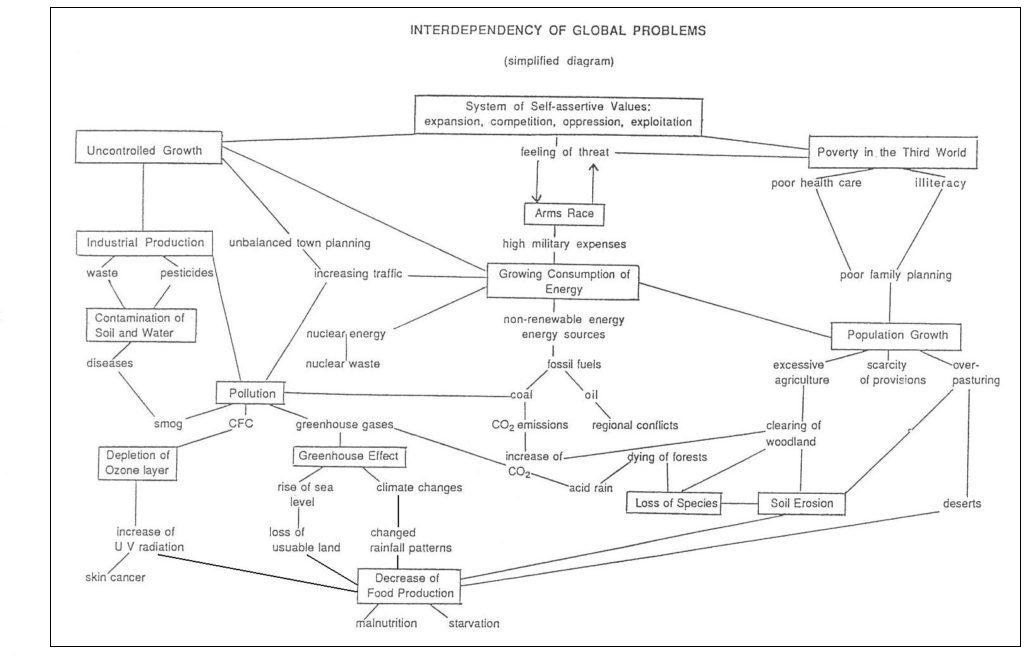16: Developing Good Governance
- Page ID
- 75948
- Distinguish between environmental conflict and environmental insecurity, using concrete examples.
- Describe how the environmental security of a population, community, or country can be increased.
- Discuss how ecocentric thinking can be useful in the pursuit of environmental security, even though the latter is an anthropocentric concept.
- Critique the conventional interpretation of sustainable development as it is represented in the Brundtland report.
- Give some examples from your own country that illustrate the influence of weak interpretations of sustainable development in government policy.
- Describe the principles of good environmental governance using examples (real or hypothetical) of policy decisions.
- Describe how your personal values reflect (or how they could be changed to reflect) at the personal and external levels the ideals of Earth democracy.
- Explain how the principal values in the Earth Charter support good governance.
The consequences of excessive consumption and resource exploitation at the global level are growing inequity and environmental degradation. Each of these two factors amplifies the other, leading to a ‘double exposure’ of spiralling insecurity. The mutual reinforcement between these trends can only be interrupted if active steps are undertaken towards environmental security.
The problem with conventional interpretations of sustainable development is that they do not promote environmental security. Reasons include the separation in space and time between perpetrators and victims; the inability to arbitrate between economic, social, and environmental agenda in the popular ‘triple bottom line’ approach; and the indiscriminate claim that all humans, present and future, can ‘have it all’ without attention to the requirements. Underneath that convention lies a weak model of sustainability that regards the natural environment as ‘the other.’ Conversely, workable “strong” definitions of sustainability and sustainable development must rest on the primacy of ecological integrity as a requirement for environmental security and thus human security.
Current models of governance rest on the weak model of sustainability, as far as they recognise its importance at all. This indicates a failure of states and of citizens in exercising their responsibilities. Good environmental governance would be based on the strong notion of sustainability and on a non-anthropocentric responsibility and care for the community of life. Its normative principles include respect for ecological integrity in decision-making; intra and inter-generational equity; the precautionary principle; internalization of environmental costs; and responsibilities of guardianship. It also employs the process principles of transparency, participation, and accountability, and in order to achieve good environmental governance, the global civil society (NGOs) needs to extend from NGOs to include entire electorates and to get them to accept their responsibility to ensure human security. This requires a model of Earth democracy that relies on a profound normative change.
The Earth Charter outlines a blueprint for Earth democracy and global environmental governance (Earth Charter Initiative 2000). It consists of four themes that form the foundation for a global sustainable society: respect and care for the community of life; ecological integrity; social and economic justice; and democracy, non-violence, and peace. It does not address methodologies and arbitration of contradictions. Subsequent steps include a global constitution and the entrenchment of sustainability in international law.


